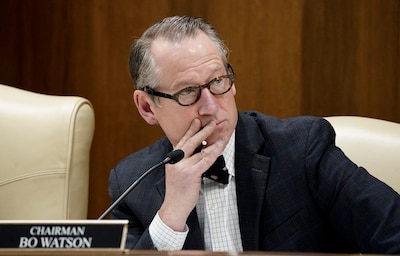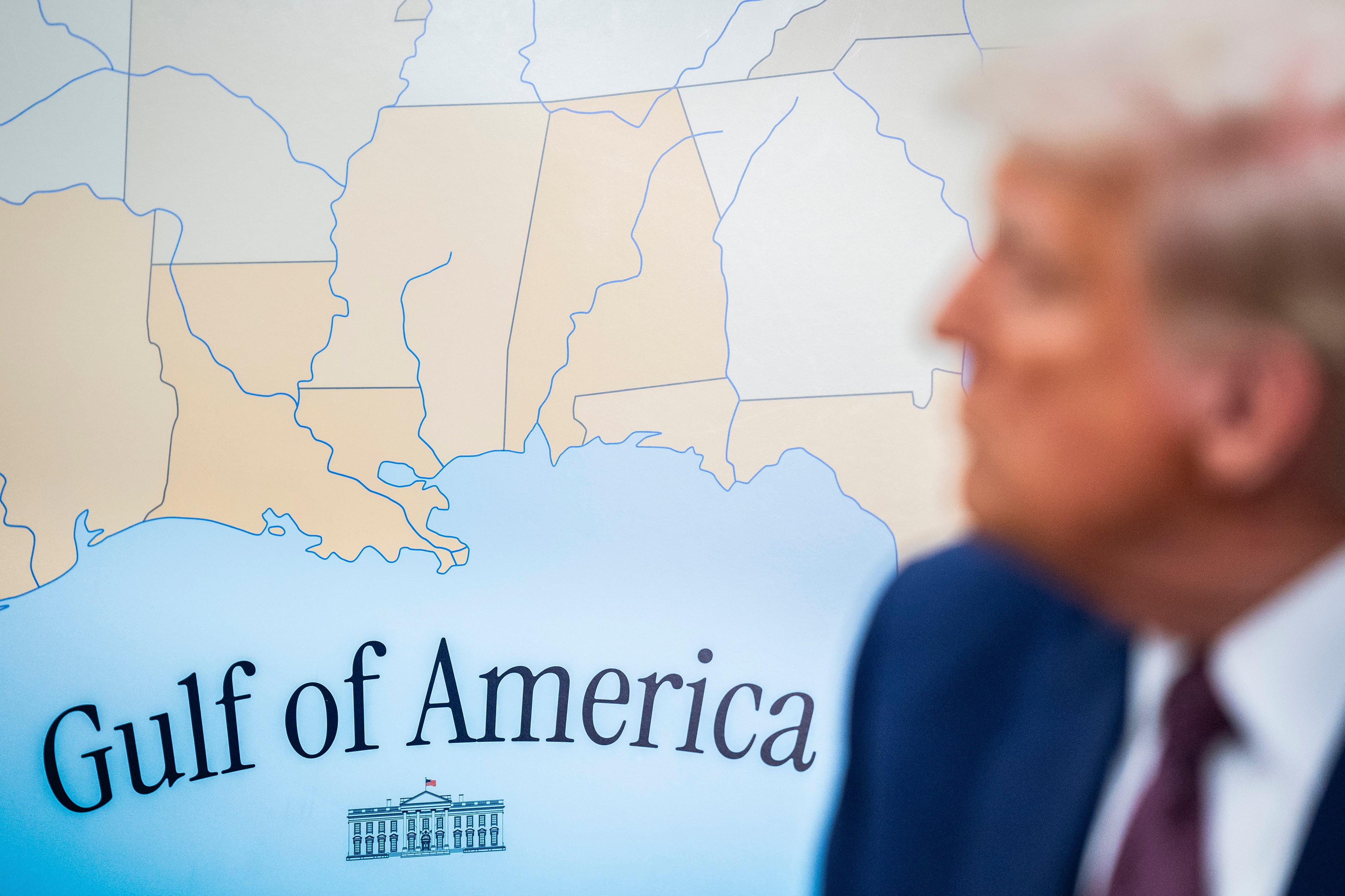Sign up for Chalkbeat Tennessee’s free newsletter to keep up with statewide education policy and Memphis-Shelby County Schools.
A state Republican leader has introduced a resolution encouraging Tennessee teachers, especially geography teachers, to use the names Gulf of America and Mount McKinley when speaking with their students about map locations recently rebranded by President Donald Trump.
As a proposed resolution and not a law, the measure would not place any mandates or requirements on teachers if it’s approved.
State Sen. Bo Watson, a Hixson Republican who chairs the Senate Finance Committee, filed his resolution Thursday and had amassed 19 co-sponsors, including Lt. Gov. Randy McNally, by the end of the day, ensuring its passage in the 33-member Senate.
Watson’s resolution follows Trump’s executive order renaming as the Gulf of America the body of water that for 400 years has been known internationally as the Gulf of Mexico. The order — titled “Restoring Names That Honor American Greatness” — also reversed President Barack Obama’s 2015 executive order renaming Alaska’s Mount McKinley, the nation’s highest peak, as Denali, the site’s Native Alaskan name.
Republican lawmakers in Iowa already have advanced a bill that would require schools to change educational materials to map names that align with Trump’s “America First” worldview.
The Tennessee proposal reads: “We most heartily agree with President Trump that ‘the naming of our national treasures … should honor the contribution of visionary and patriotic Americans in our nation’s rich past.’”
On Friday, Senate Democrats called the resolution a “distraction” to important education matters aimed at preparing students for the jobs of tomorrow.
“Everybody has a right to file resolutions if they think it’s important, but it’s not going to be one that I’ll support,” said Senate Minority Leader Raumesh Akbari, of Memphis.
Trump’s order has already sparked reflection, discussion, and debate among teachers, as well as mapmakers, journalists, and textbook publishers who seek to stay apolitical about map lines that are inherently political.
Mark Finchum, executive director of the Tennessee Council for the Social Studies, said his organization’s board has not taken a position so far or offered guidance to social studies teachers who are its members.
“Personally, I believe what teachers will do is what’s in the best interest of students,” said Finchum, a retired social studies teacher from Jefferson County.
“I don’t think they’re going to ignore the topic, but I also don’t think they’ll simply call it the Gulf of America and continue with the lesson,” he said. “In Tennessee, geography is primarily taught in middle and high school, so these students are old enough to have heard the words Gulf of Mexico. If you just call it the Gulf of America, some student is going to raise their hand.”
Tennessee, which overwhelmingly voted for Trump last fall and where Republicans have a firm grip on state government, has been an early adopter of laws stoking culture war battles around education in recent years.
In 2021, it became one of the first states to enact a law intended to restrict K-12 classroom discussions about race, gender, and bias. That law is being challenged in court by a group of teachers and the state’s largest teacher organization.
Under Republican Gov. Bill Lee, the legislature also has passed several laws leading to the purging of hundreds of library books from public schools, with titles involving race, sex, and the Holocaust among the most frequent targets.
And earlier this month, Watson introduced a bill that could allow school districts and charter schools to bar undocumented students from enrolling, potentially challenging a 1982 U.S. Supreme Court decision entitling all children to a public education regardless of their immigration status.

His latest resolution says the body of water between Florida and Mexico warrants renaming because of the gulf’s pivotal role in shaping America’s future and the global economy.
Regarding the name of the nation’s highest peak in Alaska, the resolution cites President William McKinley’s leadership behind the U.S. victory in the Spanish-American War and the nation’s rapid expansion, including the annexations of Puerto Rico, Guam, and Hawaii, during McKinley’s administration from 1897 until his assassination in 1901.
Informally, Alaskans have called the snow-covered mountain Denali, its Native name, for decades. President McKinley, who was from Ohio, never set foot in the state.
You can track the resolution on the General Assembly’s website.
Marta Aldrich is a senior correspondent and covers the statehouse for Chalkbeat Tennessee. Contact her at maldrich@chalkbeat.org.






